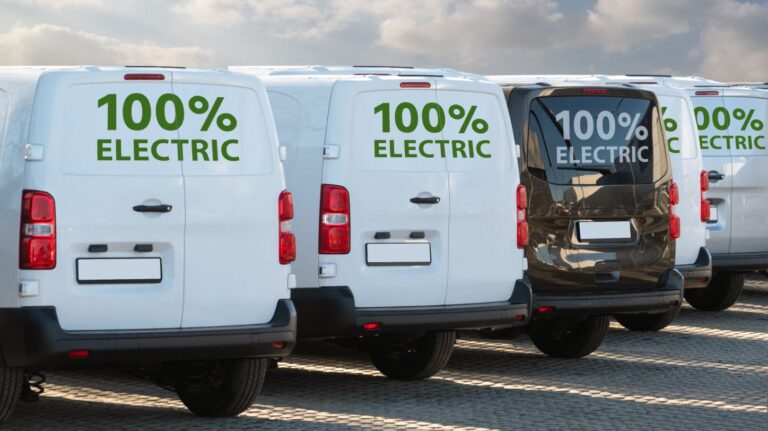According to data from a survey of over 250 decision-makers with fleets consisting of more than 250 vehicles, 47% reported that transitioning to electric vehicles (EVs) has positively impacted their business.
The study, conducted by mobility provider Ayvens, also found that the biggest drivers of fleet decarbonisation for fleets containing EVs are government regulations and climate change, with both issues identified by as a motivating factor by 44% of those surveyed.
Additionally, the research showed that almost half of companies that have switched to EVs are more likely to invest in renewable energy (46%) as well as driver training and route planning (48%) to support their transition to net zero.
READ MORE: Currys cuts annual fuel costs by over £400,000 through driver coaching
Respondents also highlighted reduced costs (49%), higher employee engagement and retention (56%), and an improved brand image (56%) as some of the benefits they’ve experienced as part of their wider decarbonisation strategy.
Speaking on the findings of this research, Tim Laver, UK Managing Director at Ayvens, said: “Fleets that have made the transition to electric vehicles are viewing the change as part of the wider decarbonisation strategy, recognising the opportunities it can bring to their businesses.
“From improved operational efficiency, reduced costs and higher employee engagement and reputation, fleets are widely benefitting from their decarbonisation objectives and reaping the rewards.
“However, we know all too well the challenges fleets face when they embark on their journey towards more sustainable operations. They’re dealing with issues around technology, charging and limited vehicle options and are concerned about consistent government policy.
“Government regulations are a significant factor that heavily influences fleets’ decarbonisation plans. Greater clarity is needed around this.”
Amongst the biggest challenges in fleet decarbonisation reported by the survey’s respondents were difficulties with technology adoption (51%), supply chain issues (47%) and limited vehicle options (48%). Insufficient charging infrastructure was identified as a challenge by 43% of respondents, while 37% cited unclear regulations as a difficulty.
On this point, 35% of respondents reported slowing down their fleet decarbonisation plans due to shifting government policies, prompting Ayvens’ Laver to call for greater clarity from the government on this matter.
Want to find out more about how to achieve sustainability improvements in the supply chain? The Sustainable Supply Chain Exhibition, co-located with IntraLogisteX and Robotics and Automation at the NEC Birmingham on 25-26 March 2025, will offer a focused environment for logistics, supply chain and sustainability professionals to share ideas, offer solutions and help each other on their sustainability journeys.
Click here to register for free!







